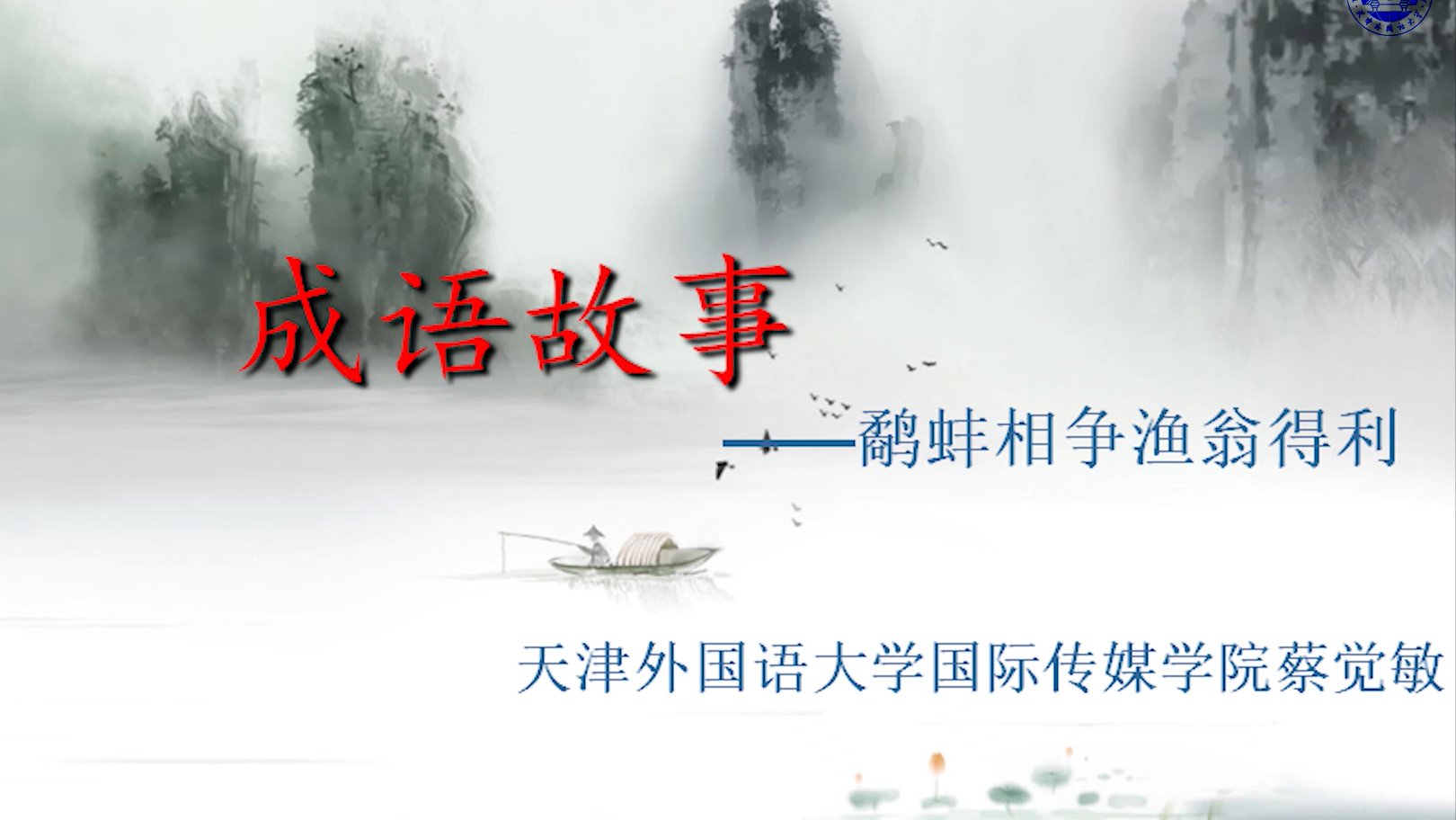Two Dogs Strive for a Bone, and a Third Runs away with It
鹬蚌相争,渔翁得利

Course Syllabus 课程章节
1There are many fixed words in China. These words have three characters, four characters, five characters, even more characters, but most of them have four characters. Their composition is fixed and cannot be changed. Although the number of characters is small, they are often rich in meaning. These words are called idioms, such as “Racing ahead”, “Constant dripping wears away the stone”. There are many idioms in China, and their origins are different. Some derives from the fables in the book, and some derives from historical legends. These stories with certain characters and plots originally have a relatively large number of words, so people use very few words to summarize their meaning. In this way, they can be used in other places. Idioms are a special language phenomenon in China, and they are also related to the monosyllables of Chinese characters, because only monosyllable Chinese characters are more convenient to form fixed idioms. Idioms are the product of Chinese culture and also contain Chinese culture and history. Today, let’s learn a well-known idiom formed in Chinese history, Two Dogs Strive for a Bone, and a Third Runs away with It.
中国有很多固定的词语,这些词语有三个字的,有四个字的,有五个字的,也有更多字的,但绝大部分是四个字。它们的构成是固定的,不可以随便改变,虽然字数少,但往往可能有比较丰富的意思,这些字数固定、意义丰富的词,就叫“成语”,例如“一马当先”、“锲而不舍”。中国的成语很多,其形成原因也不一样,有的成语是来自于一些书中的寓言故事,有些是来自于历史传说。这些本来是一个一个的故事,有一定的角色和情节,但字数原本比较多,人们就以极少的字数,概括它的意思,但还是能够表达出其中的象征意义,这样的话,它就能够在其他地方使用了。成语是中国特殊的语言现象,也与中国汉字的单音节有关,因为只有单音节的汉字,才比较方便形成固定音节的成语。成语是中国文化的产物,也蕴含了中国的文化和历史。这节课,我们要学习的鹬蚌相争,渔翁得利就是中国历史中形成的广为人知的成语。





